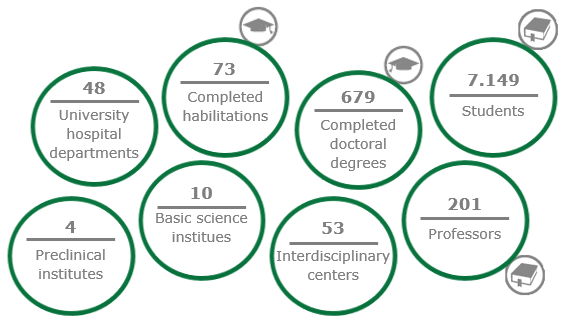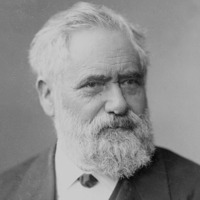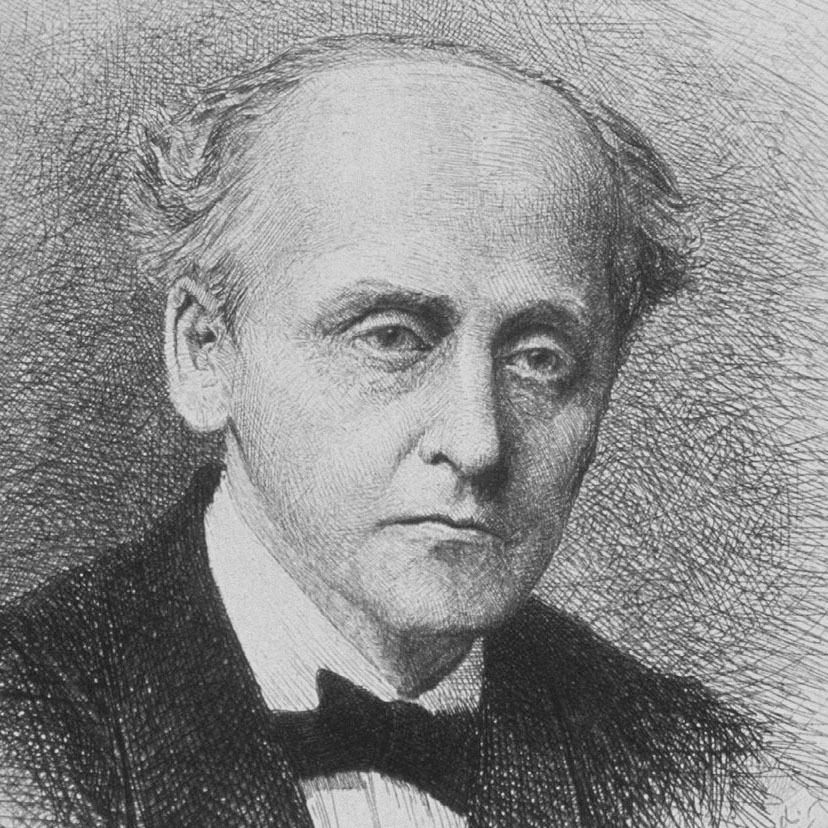Facts and Figures
The Faculty of Medicine and the University Hospital of Ludwig-Maximilians-Universität München (LMU Munich) are among the strongest research centres of university medicine in Europe and are characterised by excellent research and teaching. At the two campus "Großhadern" and "Innenstadt (City Center)", doctors and scientists are developing new diagnostic and treatment methods and training the next generation of physicians. Patients benefit directly from the findings of state-of-the-art medicine in clinical studies.
The Fact Sheet Research 2024 summarizes compactly on six pages current data, facts, highlights and fundings of research at the Medical Faculty and the University Hospital of the LMU.

Status in 2022
Clinical trials
In clinical research, scientists question how diseases of all kinds can be better treated, better recognised or perhaps even prevented. In clinical trials, research results benefit the patient directly. Clinical trials are aimed at evaluating a medical, surgical, or behavioral intervention. They are the primary way to find out if a new treatment or a new diagnostic method can be of significant help to future patients. Only if studies in laboratory tests show favorable results it is ethically justified to involve people directly in clinical trials. Since 2007, Germany has conducted the most clinical trials in Europe and is only surpassed worldwide by the number of clinical trials in the USA. As one of the largest and most efficient university hospitals in Germany, the University Hospital of LMU Munich conducts Investigator Initiated Trials (IITs), Non-AMG / Non-MPG studies and commercial clinical trials.
Clinical trials at LMU Hospital:
- recruiting interventional or observational studies
- non-recruiting interventional or observational studies
Collaborative Research
Today, LMU is the only university in Germany to host all eight German Centers for Health Research. As part of the national program for excellence the faculty hosts the Munich Cluster for Systems Neurology. The University Hospital and the Faculty of Medicine of LMU Munich are home to six Collaborative Research Center (CRC) and Transregios of the German Research Foundation, sixeen Grants from the European Research Council (Starting, Consolidator, Advanced) and numerous other European research projects. From day one, students of human medicine and dentistry are introduced to the ideal image of the " clinician scientist", who unites the healthcare provider with the researcher.
Famous Personalities
Milestones and names in the history of medicine are connected with LMU Munich:
Röntgen, Alzheimer, Pettenkofer, Nussbaum, Butenandt, Lynen
| Max von Pettenkofer (1818-1901): Established the first hygiene institute and medical hygiene as a subject. |
 | ="" Alois Alzheimer (1864-1915): Construction and direction of the anatomical laboratory "Alzheimer's microscopy room". | ||
| Johann Nepomuk von Nußbaum (1829-1890): Conceived a guide for antiseptic wound treatment. |
 | ="" Adolf F. J. Butenandt (1903-1995): Researcher in the field of sex hormones, oestrogen, progesterone and androsterone (Nobel laureate) | ||
| Wilhelm Conrad R ntgen (1845-1923): Discovered the X-rays that were named after him (Nobel laureate). |  | ="" Feodor Felix Konrad Lynen (1911 -1979): Discovered together with Konrad Bloch the mechanism and regulation of the metabolism of cholesterol and fatty acids (Nobel laureate). |
Picture sources: LMU, Deutsches Museum, Bayerische Staatsbibliothek/ Bildarchiv

